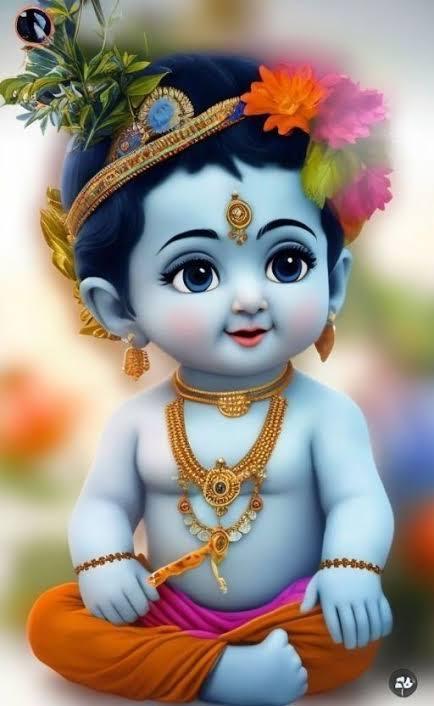Lord Krishna, a central figure in Hinduism, is revered for his multifaceted qualities and divine love. He is celebrated as the eighth avatar of the god Vishnu, incarnating on Earth to restore righteousness (dharma) and dispel darkness and ignorance. Krishna's life, as depicted in Hindu scriptures such as the Mahabharata, Bhagavad Gita, and Bhagavata Purana, is filled with divine exploits, teachings, and profound acts of compassion and love.
Krishna's love is portrayed in various forms. His divine love (bhakti) for his devotees exemplifies unconditional compassion and care. He demonstrates this through his interactions with devotees like Radha, who symbolizes the highest form of devotion and love towards Krishna. Their love is depicted as transcendental and eternal, representing the union of the individual soul (jiva) with the supreme soul (Paramatma).
Krishna's playful and mischievous nature, especially as a child (as depicted in stories of his childhood exploits in Vrindavan), endears him to devotees, illustrating a playful yet profound relationship between the divine and the human. His teachings in the Bhagavad Gita emphasize the importance of selfless devotion (bhakti yoga) and duty (karma yoga), guiding humanity towards spiritual enlightenment and liberation (moksha).
Krishna's love extends beyond personal relationships to encompass universal love and compassion for all beings. He embodies the ideals of righteousness, justice, and protection of the righteous (dharma), as seen in his role as a charioteer and advisor to Arjuna in the Mahabharata war.
Overall, Krishna's love in Hinduism serves as a guiding light, inspiring devotees to cultivate devotion, compassion, and righteousness in their lives. His divine leelas (playful acts) and teachings continue to resonate deeply with millions worldwide, fostering a profound spiritual connection and devotion to the Supreme Being.

